Supported sensors¶
This page contains a list of supported sensors, along example configuration blocks for those based on the mrpt::hwdrivers::CGenericSensor interface. All hardware and sensor-related classes can be found in the mrpt-hwdrivers library, which contains the mrpt::hwdrivers namespace. See also: Application: rawlog-grabber.
Unless specifically noted, all devices are supported under both Windows and Linux, with only some (for now) supported on MacOS.
Contents
1. 3D range cameras¶
Any 3D camera supported by OpenNI2¶
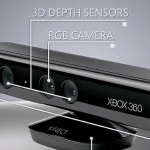
The C++ interface is implemented in the class mrpt::hwdrivers::OpenNI2Sensor.
Xbox Kinect (RGB+D camera)¶
The C++ interface is implemented in the class mrpt::hwdrivers::CKinect. See this page for more information, demo videos and example code.
SwissRanger SR3000/4000 (legacy)¶
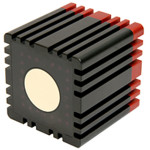
The C++ interface is implemented in the class mrpt::hwdrivers::CSwissRanger3DCamera. See the page of the demo application for more information and a demo video.
Manufacturer: mesa-imaging
2. 2D laser scanners¶
SICK LMS 2XX¶
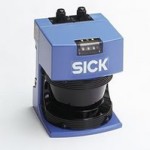
SICK LMS2XX laser scanners are supported by the class mrpt::hwdrivers::CSickLaserSerial, which supports a wide variety of configurations (different aperture angles, 0.25/0.50/1.0 degrees separation between rays,…) and operating baud rates, including 500Kbauds for the USB2SERIAL converters that allow that configuration (based on FTDI chips).
SICK LMS 100 (Ethernet)¶
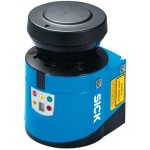
SICK LMS 100 laser scanners with Ethernet interface are supported by the class mrpt::hwdrivers::CLMS100Eth.
SICK TiM 55x/56x (Ethernet)¶
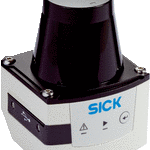
SICK TiM laser scanners with Ethernet interface are supported by the class mrpt::hwdrivers::CSICKTim561Eth.
Note: Since MRPT 1.9.9.
Hokuyo URG/UTM/UXM¶

A wide range of Hokuyo laser scanners are supported by one single class, the mrpt::hwdrivers::CHokuyoURG. See also the example named HOKUYO_laser_test.
See the manufacturer website: http://www.hokuyo-aut.jp/
Ibeo Automotive Laser Scanners¶
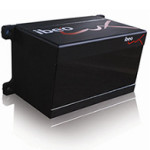
Ibeo LUX laser scanner, Ethernet-interfaced, is supported since MRPT 0.9.4 through the class mrpt::hwdrivers::CIbeoLuxETH.
See the manufacturer website: http://www.ibeo-as.com/
RoboPeak RP-LIDAR laser Scanners¶
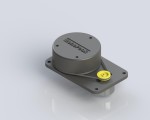
The low-cost RP-LIDAR sensor, USB-interfaced, is supported since MRPT 1.2.2 through the class mrpt::hwdrivers::CRoboPeakLidar.
See the manufacturer website: http://rplidar.robopeak.com/
3. 3D LIDARs¶
Velodyne¶
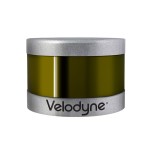
Velodyne 3D LIDARs are supported by means of:
Visualization of datasets: Application: RawLogViewer
Grabbing LiDAR scans, simultaneously to other sensors, is possible via: Application: rawlog-grabber
4. Cameras¶
Important: MRPT provides a universal class capable of managing all the following cameras with a common interface, deciding which camera to open at runtime and converting the images from all the cameras to one single format, the OpenCV IplImage format. See the class mrpt::hwdrivers::CCameraSensor.
Monocular and stereo cameras¶
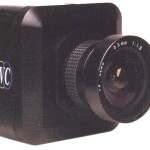
Apart from the generic CCameraSensor class, MRPT offers this implementation-specific classes:
All cameras supported by OpenCV are accessible by means of the class mrpt::hwdrivers::CImageGrabber_OpenCV.
Firewire cameras are specifically supported in GNU/Linux by means of the libdc1394 library and the class mrpt::hwdrivers::CImageGrabber_dc1394.
All Point Grey Research (PGR) cameras supported by FlyCapture2 can be read with the class mrpt::hwdrivers::CImageGrabber_FlyCapture2 (Requires: MRPT 1.0.3). Stereo pairs built from two independent PGR cameras are supported via mrpt::hwdrivers::CCameraSensor.
Bumblebee/Bumblebee2 Stereo cameras¶
Bumblebee stereo cameras are supported in MRPT in both Windows & GNU/Linux by means of the manufacturer API and the libdc1394 libraries, respectively. The C++ interface is the same in any case, and it’s implemented in the classmrpt::hwdrivers::CStereoGrabber_Bumblebee_libdc1394.
Videre Stereo cameras¶
Videre stereo cameras are supported in MRPT (since MRPT 0.9.1) for GNU/Linux only for now, by means of the manufacturer SVS API. The C++ interface is implemented in the class mrpt::hwdrivers::CStereoGrabber_SVS.
IP cameras and video files¶
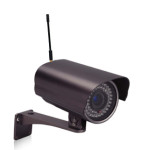
Both IP cameras and offline video files (in many common video formats and codecs) are supported by means of the ffmpeg libraries, within the MRPT class mrpt::hwdrivers::CFFMPEG_InputStream.
5. Inertial Sensors (IMUs)¶
5.1. xSens MTi Inertial Units (IMUs) – 4th generation devices¶
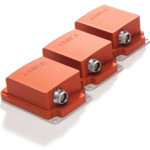
The interface to this sensor is implemented in the class mrpt::hwdrivers::CIMUXSens_MT4.
Required: MRPT 1.0.3
5.2. KVH DSP3000 (Fiber Optic Gyro)¶
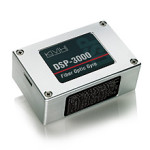
A precise fiber optic gyro. The interface to this sensor is implemented in the class mrpt::hwdrivers::CGyroKVHDSP3000.
See the manufacturer website: http://www.kvh.com/…/Fiber-Optic-Gyros/DSP-3000.aspx
6. GPS receivers¶
Parser of standard NMEA commands and Novatel binary frames¶
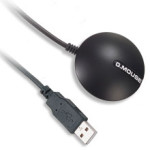
An implementation of a parser of NMEA commands from a wide range of GPS devices, also capable of receiving Novatel frames (this latter feature, only available in MRPT 1.3.3 or newer), can be found in the class mrpt::hwdrivers::CGPSInterface.
RTK corrections via NTRIP¶
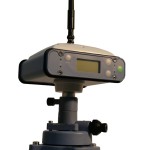
You can use advanced RTK GPS receivers with MRPT. For that, MRPT includes a class that receives NTRIP RTK corrections from an Internet server and sends them to a serial port connected to the GPS receiver. See mrpt::hwdrivers::CNTRIPEmitter.
7. Activemedia robotic bases (All ARIA-compatible bases)¶
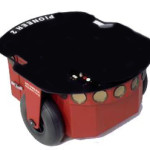
Note: Support for these robots was dropped in MRPT 1.5.3. Use older versions if you need it with MRPT. Ten years ago, it might make sense to integrate ARIA into MRPT, but nowadays it’s probably more practical to use ARIA ROS packages to access robots instead of directly using MRPT.
8. Rovio mobile robot/webcam¶
An interface to this mobile robot, equipped with an IP camera, is
implemented in the C++
class mrpt::hwdrivers::CRovio.
Note: Deprecated and removed in MRPT 2.1.0.
See the manufacturer web: http://www.wowwee.com/en/products/tech/telepresence/rovio/rovio
9. Joysticks¶
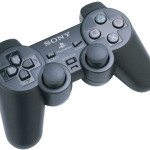
A cross-platform and very simple interface to joysticks is provided via the class mrpt::hwdrivers::CJoystick.
10. Pan and Tilt Units¶
Direct Perception Pan-Tilt-Unit (PTU)¶
An interface to this PTU model is implemented in the C++ class mrpt::hwdrivers::CPtuDPerception.
Micos Tilt-Unit¶
An interface to the precision “rotation stage DT-80”, by MICOS. See the C++ class mrpt::hwdrivers::CTuMicos.
See the manufacturer website: http://www.micos-online.com/web2/en/1,5,120,dt80.html
11. Range-only or RFID sensors¶
Impinj’s RFID Speedway Revolution Reader¶
This sensor is supported by the MRPT class mrpt::hwdrivers::CImpinjRFID. Note however that this sensor requires an external program outside of MRPT for communications (refer to the Doxygen documentation of the C++ class).
See the specifications of the sensor in: http://www.impinj.com/products/speedway/
12. Generic I/O boards¶
Phidgets boards¶
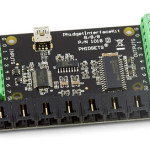
Phidgets Inc.’s board “PhidgetInterfaceKit 8/8/8” is supported by class mrpt::hwdrivers::CPhidgetInterfaceKitProximitySensors.
Manufacturer web: http://www.phidgets.com/products.php?product_id=1018
National Instruments boards compatible with DAQmx Base¶
Note: Since MRPT 1.0.3
13. Gas and Wind sensing devices¶
MiniRAE Lite photoionization detector (PID)¶
This sensor for fast detection of volatile organic compounds (VOC) is supported by the software driver C++ class mrpt::hwdrivers::CRaePID
Manufacturer web: http://www.raesystems.com/products/minirae-lite
Gill WindSonic Wind sensor¶
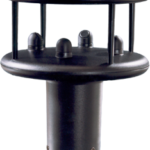
Speed and direction ultrasonic wind sensor. Supported by the software driver C++ class mrpt::hwdrivers::CGillAnemometer
Manufacturer web: http://gillinstruments.com/products/anemometer/windsonic.htm